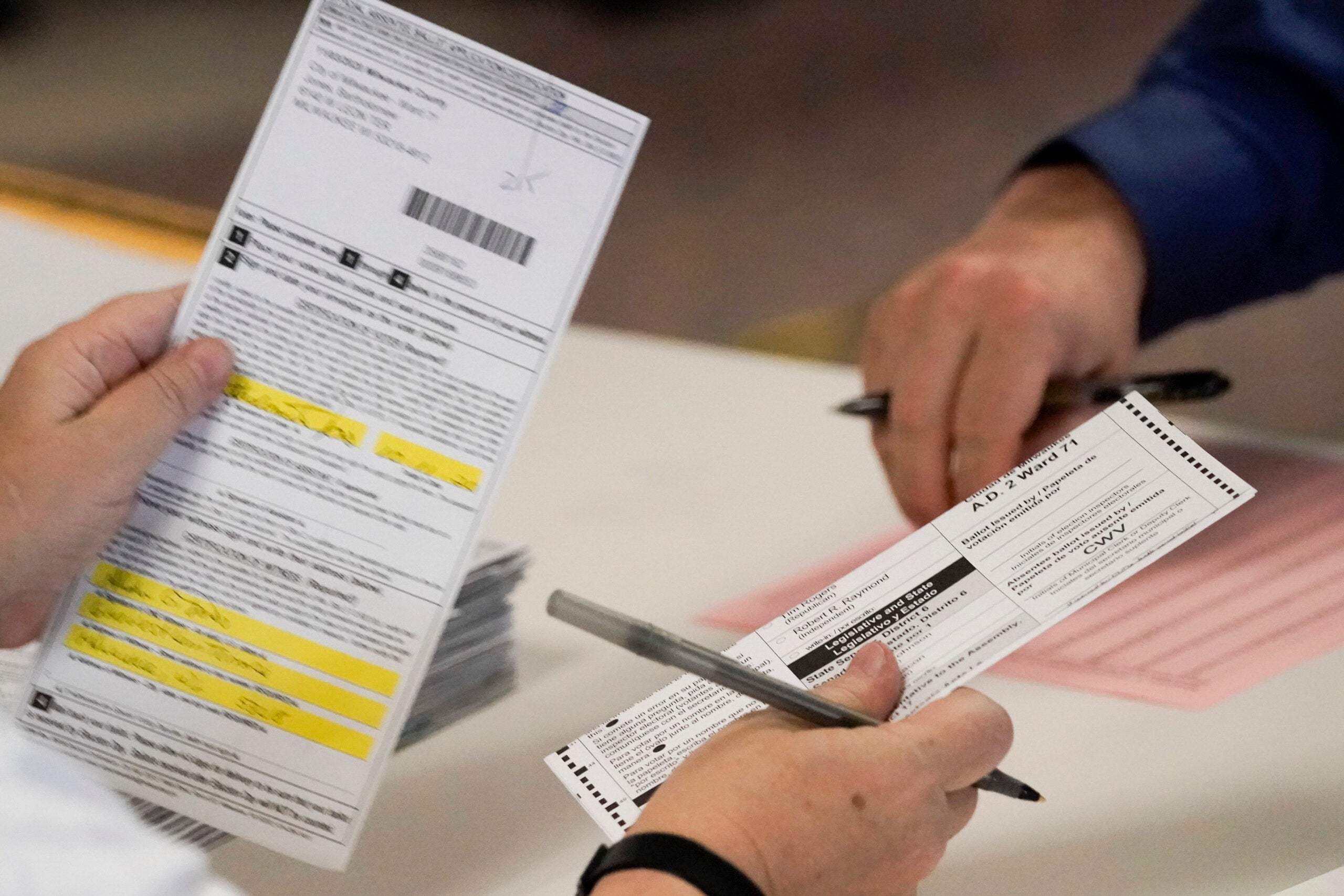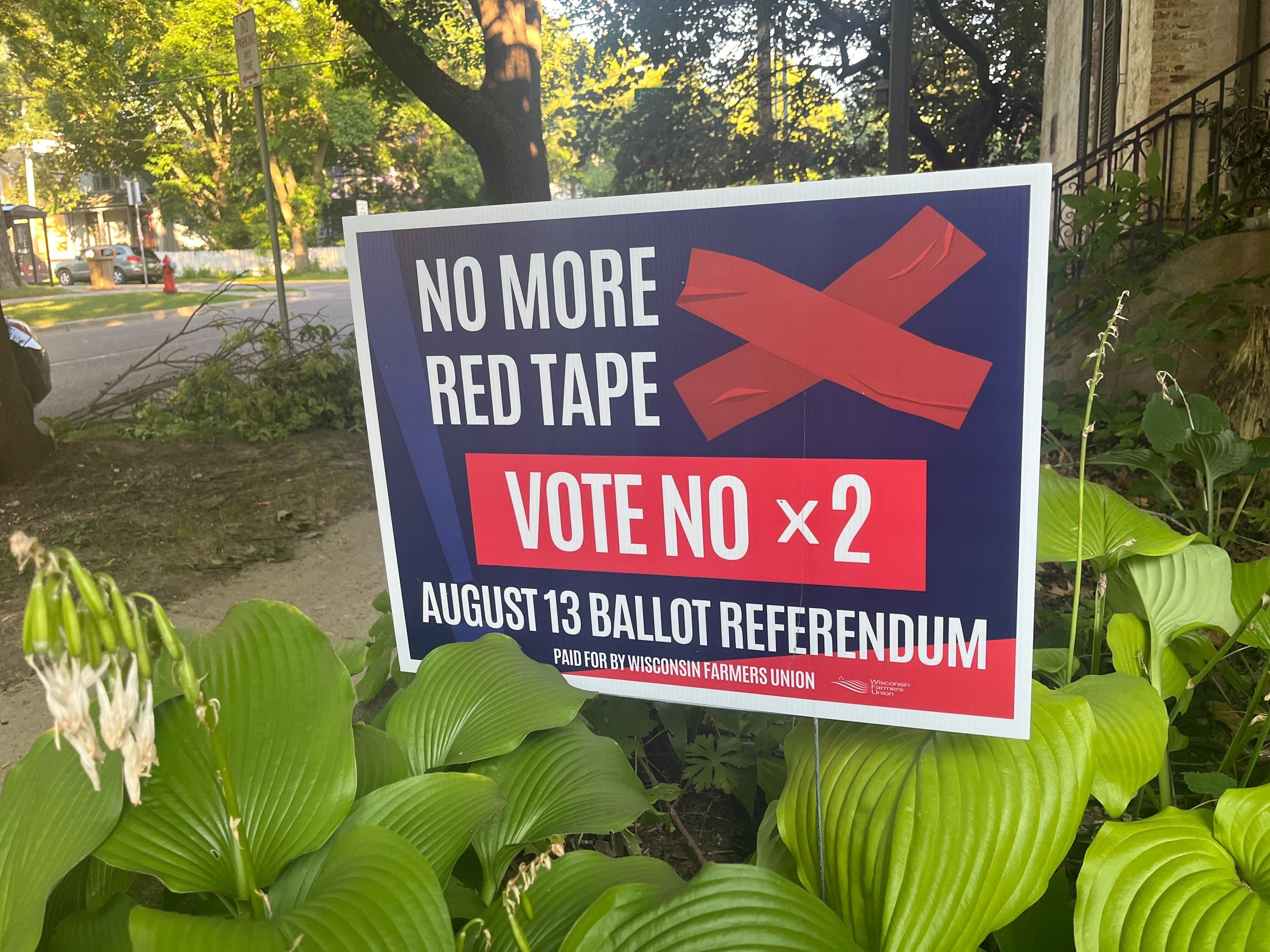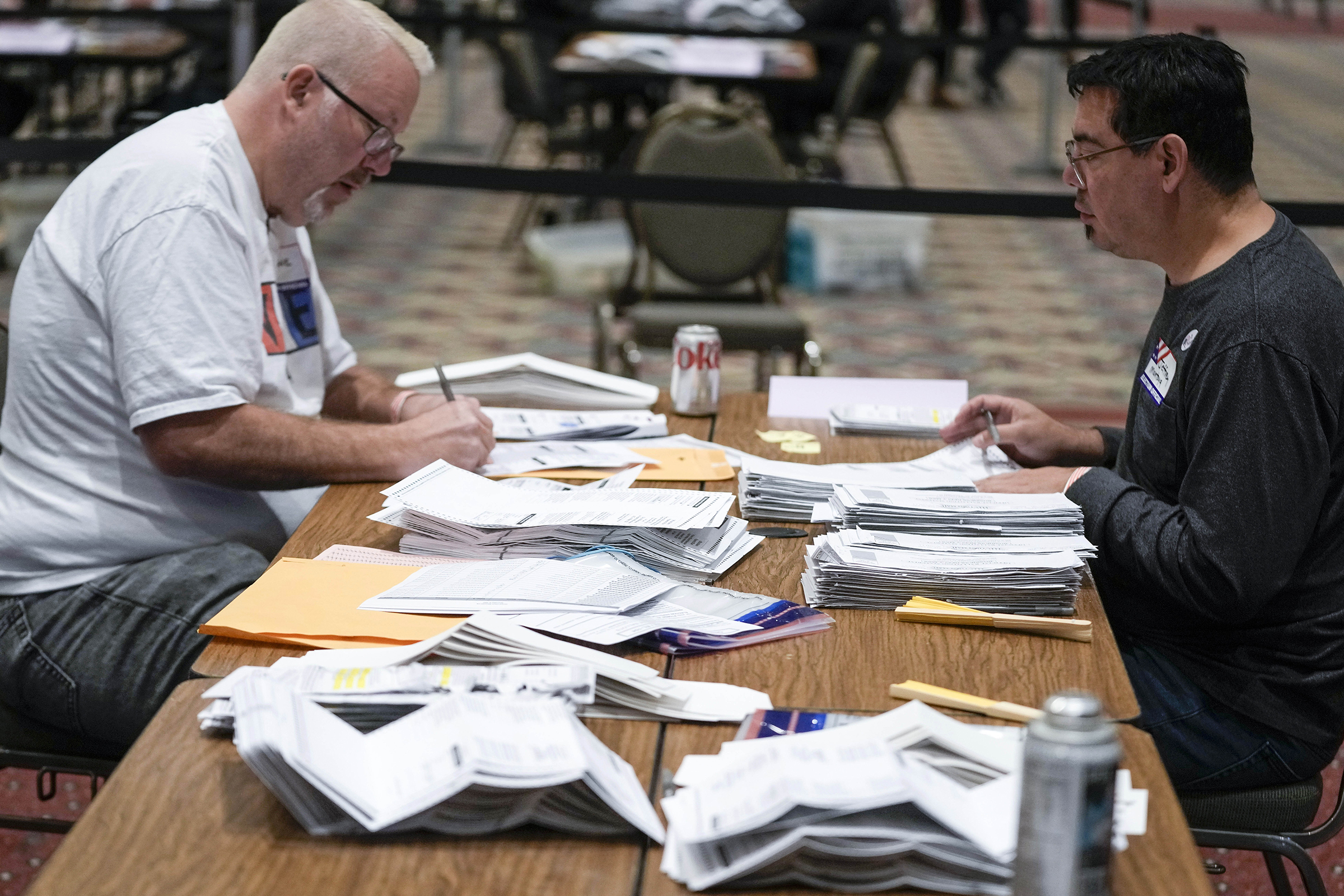A proposal that would require a military voter to provide identification when applying for an absentee ballot sparked debate about the security of electronic ballot return Tuesday at a legislative committee hearing.
Members of a state Assembly panel took public testimony on Tuesday about a slate of bipartisan election-related bills, including the military voter bill which would require a military voter to provide their federal Department of Defense, or DOD, number when applying for an absentee ballot.
A municipal clerk would verify that number under the bill, which backers say would align a military voter’s identification requirements with those of most other Wisconsin residents. A military voter would need to resubmit their DOD number every six years, or if their name or address has changed.
News with a little more humanity
WPR’s “Wisconsin Today” newsletter keeps you connected to the state you love without feeling overwhelmed. No paywall. No agenda. No corporate filter.
The bill was written in response to the case of Kimberly Zapata, the former deputy director of Milwaukee’s election commission who fraudulently requested military absentee ballots last fall. According to a criminal complaint against Zapata, she did so in order to demonstrate election fraud exists. She has since been charged with election fraud and felony misconduct in public office.
“This situation showed that the system to request military absentee ballots is quite frankly flawed, and this legislation seeks to solve that problem to ensure security and our election process,” said Rep. Shae Sortwell, R-Two Rivers, a co-author of the bill.
The bill would also create a new process for returning ballots electronically. The bill’s authors say this would expedite the return of ballots from overseas locations from which postal mail might be too slow, effectively disenfranchising military members.
But some secure election advocates said this could undermine both the security of individual votes and also open elections offices and other governmental bodies to malware and hacking.
C.Jay Coles is a senior policy associate with Verified Voting, which advocates for responsible technology use in elections. He testified in opposition to the bill’s electronic return aspect, citing a study by the National Academies of Sciences, Engineering and Medicine that found that the technology to return marked ballots “securely and anonymously over the internet … does not exist.”
Coles also warned about the possibility of foreign interference in elections — or the appearance of interference that sows distrust.
“What happens in a scenario when you’ve held an election, and some of those votes have been returned electronically? Everything seems fine. And six months down the road, some cyber gangsters in some basement halfway across the world say, ‘We hacked Wisconsin’s election six months ago, and they didn’t know it.’ What do you do?”
Twenty-six states allow some form of electronically submitted ballot, according to the National Conference of State Legislatures.
“A lot of states do it. And it’s insecure in all those states,” said Susan Greenhalgh, a senior advisor on election security with Free Speech For People, which advocates around money in politics.
Matt Rothschild, the executive director of the Wisconsin Democracy Campaign, opposed the bill in its entirety, saying it would disenfranchise military voters and their spouses. His group opposes voter identification laws generally, describing them as onerous and discouraging of legal voting.
Military voters in Wisconsin also include Peace Corps members and Merchant Marines. Two returned Peace Corps volunteers said that the requirement for a military voter to include a DOD number — which are not issued to these other types of voters — would disenfranchise Peace Corps volunteers entirely.
According to current law, military voters are not subject to the same requirements as other absentee ballots, including providing photo identification. The Wisconsin Elections Commission estimates these ballots comprise about 0.07 percent of total ballots requested each election.
In addition to the military voting proposal, the committee heard testimony about proposals to require municipalities to establish their polling places at least 30 days before an election, require the state Elections Commission to reimburse municipalities for some costs during some special elections, and require communities that broadcast election canvasses to retain a recording of those broadcasts for 22 months.
Each proposal has bipartisan sponsorship in both chambers of the Legislature.
Wisconsin Public Radio, © Copyright 2026, Board of Regents of the University of Wisconsin System and Wisconsin Educational Communications Board.





